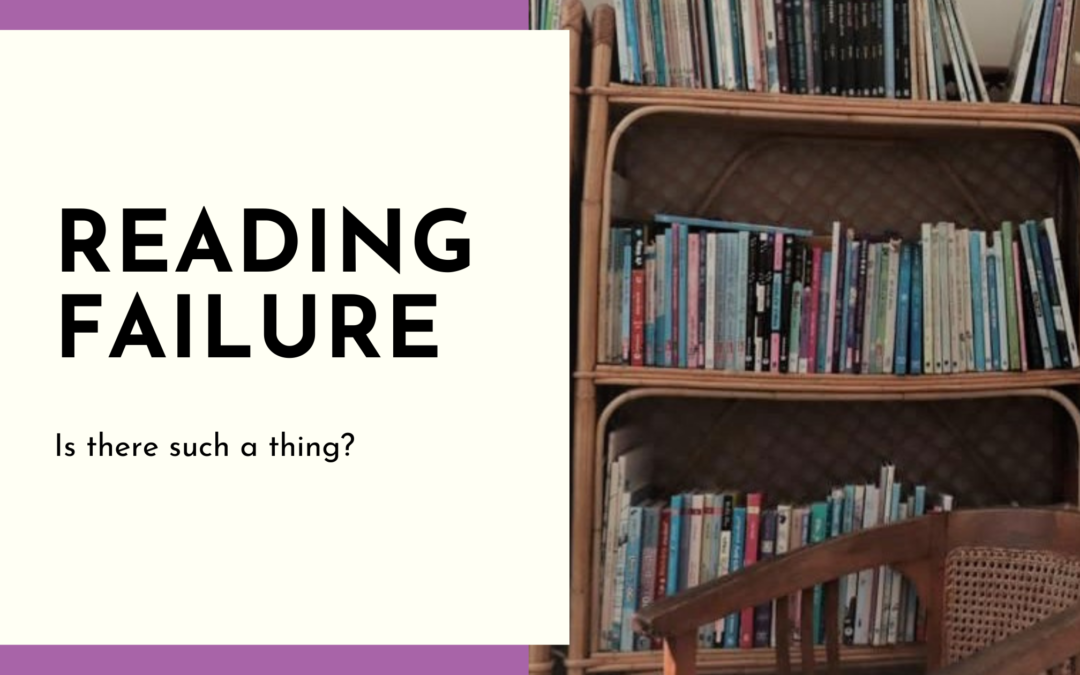Opening the gate and watching pupils walk in gives an insight into how the lesson might start. He walked heavily up the stairs. Not very happy. It was after a school outing which he did not particularly enjoy. But he was the one to have asked to come, even though he knew there would be an outing that day. His mother had written that he had had a reading failure in class that week. Lots of anger fumed out of his body language.
Body language
However, the message from his body was not only anger. It was carrying a huge weight of failure. Reading failure was not the only failure he felt; it was a failure of many years and a feeling of ‘lost hope.’ A feeling of ‘maybe I am stupid after all.’
The body message that comes with such a feeling is beyond the moment. It was clear to me that if he felt like a failure, it would impact every part of his life. As soon as I saw him, I was determined to help him change that negative feeling about himself.
Failure
The concept of reading failure or failure in general is something I often think about; Where does this come from? Who decides someone is a failure or not?
Is it an inner feeling of not being up to standard? Or something that is given to us by others?
What is the measure of failure? Parents? Teachers? Is it about comparing oneself to siblings or other pupils in the class? Is failure the end or a beginning of change within ourselves and our understanding?
Making a session into a partnership
“I am happy that you made the effort to come (needing to put something positive in the entrance),” I said. I told him that I could see how tired he was, and was curious as to what he would choose to work on; would he relate to the reading failure that everyone claims he has.
“I think, reading.” He mumbled under his breath. I could barely hear his words.
I knew him already; he always started his answers with “I think”:
I think I have difficulty in mathematics (even though he works everything out in his head and writes down answers).
I think I am no good at writing.
I think that I do not understand fully in English class -even though his mother is from an Anglo-Saxon background, and he has no problem speaking the language.
I listened and asked him- “will you tell me about your reading.
What sort of projects do you have in class? How do you manage with them?”
“We are given an article to read and then have to answer questions. I am not sure what the answers are and how to get to them.” A beginning of the reading failure feeling.
“Truth is,” I said, “that I also don’t always enjoy reading articles.
Are you okay with starting our reading with a book? It might be a more enjoyable activity for us both.
“I think that is okay!” The ‘I think’ answer gives space for going up or down in one’s feelings and achievements.
Choosing the right material for a given moment
This is a critical moment for me. I had prepared two books that he could choose from ahead of time. But then, at that moment, with his heaviness, I felt that I had to make a “perfect” choice (If there is such a thing). I considered a book that would be of interest to all kids his age. Every detail matters: I knew it should be a book that would not be too many pages. The font had to be a certain size; the cover had to be attractive. I chose three books; One with pictures – but not something which would make him feel it was for younger children. The second book had bigger spaces between the lines and the third with an interesting beginning – not much written but printed invitingly.
I put the books out on the table, including the ones I had chosen beforehand for the lesson. Discussed and looked at each one in turn. He then chose the one that started with half a printed page, and the subject seemed interesting to him.
How to start reading a book
Because he is not an avid reader and there is a difficulty for him, in a deep understanding and collecting of the information, I decided that I would start, and we would discuss a bit after each sentence. What were the important words or information in each sentence? Why did the author write this specific word – what did he mean, and what questions could we ask about the text so far.
After reading one and a half pages, I asked him to continue. But I told him we would stop every paragraph and make sure that we understood what it was all about. I often use the word “we” to make it a combined effort. I didn’t want the reading failure feeling but curiosity instead. Slowly his body relaxed, his actual reading became smooth and accurate. He started taking an interest in the story.
“Is this a true story?” he asked.
“I am not sure,” I answered. “But for me, the minute that I feel it is true for me and I feel part of a character, I continue believing it is true. Because it is true for me!”
Reaching our goal
Five minutes before the end of our session, I asked him to write one sentence that would remind him of what we had read. To my surprise, he wrote: “I think this story is written about me.” And shyly, he asked if he could take the book home to read.
I gave him the book with tears in my eyes. His feeling of reading failure was gone, and instead, there was a person who began to become curious about the mystery of books and what will come next. The feeling that overcomes me at moments like this goes beyond the victory over reading failure. It is about the pupil’s ability to adopt a different attitude toward failure. To understand that sometimes it is enough to change something in the setting and the way we do things, to be able to move from failure to success. I could already see how his body language had changed, and he had become taller and expressed more joy and confidence. and actually skipped down the stairs clutching a book in his hand.
What does reading failure mean to you?





